#tooz prompt
Text
Toozmanykids Writing Prompt
OMG. I am laughing so hard that I don't even remember why I opened YouTube this morning in the first place. This John Mulaney short automatically started playing and immediately I knew it had to be a Writing Prompt for today. Right??? At least a drabble?
Here. I'll start.
Unfortunately, no smut. It was going to be quick and funny quips at each other, yet I don't think it turned out that way by the time I got done. BUT AT LEAST THIS PROMPT GOT ME WRITING! RIGHT? Now it's your turn, y'all!

SUMMARY: No smut. Just Avengers getting on each other's nerves. Not as funny as it should've been. Damnit.
No warnings.
Word count: 730
Do you believe in ghosts?
The Quinjet had been circling for hours a ways off shore, low to the water to avoid detection, while two dozen of Tony's surveillance drones quietly searched miles of coastline for the mission's target. Four friendly neighborhood Avengers waited patientły impatiently aboard, going stir crazy quicker than anyone would admit.
The silence was thick and tense, but far more preferable to the alternative.
"Hey Mr. Stark—"
"Don't. Just don't," Tony cut off the eager new Avenger. The other two passengers groaned at the sound of Peter's voice. Again.
"But—"
"I swear if you ask me one more 'Would You Rather...?' question, I will rip Charlotte's Web right out of your insides, wrap you up into a perfect spider snack, and feed you to that starving pig."
"Geezus, Tony. Wilbur would never have eaten Charlotte," Natasha pretended to placate Tony, not even attempting to hide her smirk.
"No. No. It's not another 'Would You Rather...?' question, I promise. I got that message loud and clear the second time Miss Romanoff held a blade to my throat." Peter's hand travelled up to his throat while his other waved at Tony in surrender.
Natasha gave Peter a tiny wink when he glanced over his shoulder and offered her a sheepish and awkward smile.
"I told you, she doesn't joke when she's holding a knife," Tony cautioned again.
"Yes, she does! All the time."
"The kid's right, Tony," Natasha admitted. "I prefer to stay unpredictable."
"So Mr. Stark," Peter quickly changed the subject, still gently rubbing his neck. "Do you believe in ghosts?"
"Of course I do," Tony answered without hesitation or even a glance away from the computer screen.
"Seriously? Even after all we've seen?" Peter moved forward, leaning closer to Tony.
Natasha spun her chair to face Tony and gave him her full attention as well. "Yeah, Tony. Seriously?"
"Especially after all we've seen. I'm surprised at you two. How can you not?"
"Have you ever seen a ghost, Mr. Stark?"
"That's a ridiculous question," still not looking away from his computer screen.
"Why is it ridiculous? Have you?"
"Oh damn," slamming his hands onto his knees. "I knew I was forgetting something. I'm so sorry." Sitting up straighter, Tony turned his chair toward the back of the jet and shouted, "Hey Manchurian Candidate! I guess I never properly introduced you to the team."
In the far back end of the jet, camouflaged within the shadows wearing all black combat armor, the fourth passenger hadn't said a single word since boarding. He sat slouched in his seat, arms crossed over his chest, and knees spread wide above huge heavy black steel tipped boots polished to a shine, reflecting the only light in the tailend to infiltrate his shadows. His face was hidden by shaggy brown hair and a well worn baseball cap pulled down low.
"Baby Spider and the Spider Queen are your chippy little cohorts today if we ever spot this asshole and can touch down. Spidey friends, may I present our very own paranormal soldier, Sergeant Bucky Barnes."
"High-fucking-larious, Stark. Now fuck off," Bucky grumbled, pulling the bill of his hat even farther down over his face to look like he was napping.
"Holy shit! I didn't even know he was on board. How did I not sense him?" Peter shouted.
"That's my point, kid," Tony said. "He must be a ghost. Think about it. There's no other answer. He's straight up Jacob Marley, but missing the heavy chains with a door knocker for a nose."
They all burst into laughter - all but Bucky who grumbled some more.
After about an hour or so, Peter walked to the back of the jet and cautiously sat down next to Bucky.
The soldier didn't say anything; he didn't move; he didn't even look to be breathing.
Leaning toward him, Peter softly asked him, "You're not really a ghost, are you sir?"
"I have no idea," Bucky answered flatly and with finality.
Peter's eyes widened, more unsure of his beliefs after that cryptic non-answer than he was before he asked.
"Oh... Yes, sir," Peter said as he retreated back to his chair next to Tony.
Silence hung heavily in the Quinjet after that.
Finally.
Bucky gave Natasha a wink at one point when their eyes met. Eventually Peter would ask more questions, but they enjoyed the silence as long as it lasted.

The End.

It's a new year, and I'm going to be push myself harder to actually post. Good, bad, stupid, or slutty - I'm gonna post stuff anyway. This will be the year of drabbles, false starts, unfinished stories, and plots that go nowhere.
JUST WRITE AND POST, TOOZ!
JUST WRITE AND POST—OFTEN!
My drabble here didn't turn out the way I had planned, but I can see this idea take a fun turn if Bucky actually is a ghost. He could be!!!
He could be trapped on Earth and tethered to his super soldier body that won't decay. At least MOST of the missions Hydra sent him on were to kill other bad guys. Right?
Tony had some other theories too. But it's 3am and now I don't remember what his theory was. Grrrrr.
Anyone else looking for some inspiration?
@nildespirandum @ladyoftheteaandblood @caffiend-queen @redfoxwritesstuff @so-easy-to-love-me @acidcasualties @americasass81 @jtargaryen18 @alexakeyloveloki @devikafernando @spectre-posts @wiypt-writes @nonsensicalobsessions @latent-thoughts @mastreworld @talklokitome @wolfsmom1 @lokisgoodgirl @lokischambermaid @holymultiplefandomsbatman @muddyorbs @fictive-sl0th @villainousshakespeare @liminalpebble @jobean12-blog
I really hope to post more this year. I'm serious. AND I'll do an actual tag list. Please confirm if you want to see my stuff or prefer that I leave you alone. You are not required to listen to my drivel for me to still love reading from your blog. I promise. Honest. Just let me know.
30 notes
·
View notes
Text
Adam Tooze and Stoicism against the end of the world
On a German independent interview program called Jung & Naiv there was a guest this week, the illustrious Adam Tooze. While I haven’t seen that many interviews in my life, this was probably the best. Bouncing between personal history and broad strokes political discussion, it ends up being about climate change in a way that I on this blog(?) try to think about it, or at least, it brushes against it. The gist is this: On the one hand, Tooze brushes off questions of whether billionaires should exist with nonchalant agreement (that they obviously shouldn’t) like they are tablestakes, on the other, he talks about addressing climate change with what he seems to consider to be a grim but morally vital realism.
I’ve been thinking about stoicism a lot recently, prompted by the video essay on it by Abigail Thorn of Philosophy Tube. Your emotions are real, but they are not reality, and they are no particularly powerful tool for accessing reality. (Except, perhaps, your own inner world.) Mulling this over, I’ve come to think that Stoicism is kind of table stakes. Of course there is value and virtue in seeing the world with clear eyes. But that’s not the challenge, is it? The challenge with stoicism, as I see it, is getting any serious handle on reality. Aligning yourself with it, frankly, is the easy part.
I was introduced to the notion of crackpot realism via Adam Tooze. It is, I think derived from realism as an international politics concept which makes a virtue of cynicism because at some point, it comes down to dog eat dog, law of the jungle. There is merit in it: Countries which continue to exist tend to have armies because if they didn’t, they would find themselves being a different country sooner rather than later. When Gorbachev paraded around the international stage hoping to secure credit to liberalize the Soviet Union into something akin to Swedish social democracy, the US saw an enemy on the ropes and gave no quarter. Crackpot Realism, a term which is never self-describing, is simply when this kind of thinking becomes entirely idiosyncratic and preparation for war to prevent war leads to war.
Adam Tooze more or less professes to think that, in order to mobilize a green energy transition, a devil’s bargain with capital is necessary: Offer returns on investment of the right size and reliability, and capital flows will be directed toward it. Can it genuinely be done? There’s no guarantees, because an energy transition has literally never been done, but it’s our only shot right now. Despite myself, I think he’s right.
What can be done in five years, Tooze asks. It’s his killing argument against grander, more egalitarian visions of climate transition. He’s touching a sore spot, a thought I’ve been having: The fossil fuel companies have run out the clock. It’s ironic, in a way. Their business was never a candidate for making it over the line into the new world, but they have both created the need for and made impossible massive social upheaval to go with climate transition. It seems like there had been a moment in the 70’s, where if everything had gone (supremely) right, climate change would have been an expert problem, something dealt with by bureaucrats. Certainly an industrial challenge, but perhaps technological development could have been redirected before the sources of our trouble had become too entrenched and orders of magnitude of fossil fuel consumption had been added for us now to redirect. In that time, capitalism likely could have been redirected. Then came the time when capitalism and fossil fuels became utterly married, so that imagining the end of climate change became very synonymous with imagining an end to capitalism. Now, more time still has passed, and we must strike a bargain with capital, because it is the only game in town. Capitalism has successfully stalled all other avenues, and remains alone.
Yet, as the options grow worse and more narrow, the urgency of the matter rises with every fraction of a degree. Tooze has the ear of the establishment to some degree, and he stands at a bizarre intersection of jamming a crowbar into every crack he can find to widen the spectrum of the politically possible while also downright insisting on remaining violently constrained by it. His cause, first and foremost, does not seem to be climate justice. It is wrestling any degree of contact with reality into a politics and culture of denial; denial of the scale of problems and solutions, denial of the problems themselves. Tooze seems to be a dedicated stoic in the extreme: Promoting a painful, distasteful compromise with the realities of power and capital out of conviction about its grim necessity without sugarcoating what he thinks it is: A desperate gamble on a future which is not entirely apocalyptic and a deal with the devil to get a chance at even making that gamble. But while he is restraining himself through stoicist reasoning, he seeks to employ it as a means of salvation for the world around him. Only he, the individual, is restrained by social reality, but politics is its creator, and a stoicist politics, which takes seriously the challenges and tools at hand, must be fought for.
0 notes
Text
The U.S. federal government only insures bank deposits up to the amount of $250,000—under normal circumstances. But the failure of Silicon Valley Bank (SVB) last week triggered an extraordinary intervention, with Washington guaranteeing all deposits in full. It was an acknowledgment of the possibility that SVB’s failure might have produced a cascade of bank runs across the financial system—and also a reflection of the special status of the bank’s community of depositors, centered on California’s tech economy.
What role did the tech economy play in SVB’s failure? How could the bailouts affect the fight against inflation? And does the U.S. government simply make up the rules of financial bailouts as it goes along? Those are a few of the questions that came up in my recent conversation with FP economics columnist Adam Tooze on the podcast we co-host, Ones and Tooze. What follows is an excerpt, edited for length and clarity.
For the full conversation, look for Ones and Tooze wherever you get your podcasts.
Cameron Abadi: To what extent exactly was Silicon Valley Bank’s failure about the bank’s own mismanagement versus the Federal Reserve’s interest rate hikes of recent months? Or is there another factor entirely that I’m overlooking here?
Adam Tooze: Both those factors—Silicon Valley Bank’s mismanagement and the Fed’s interest rate hikes—do play a key role. But there’s a third factor here, because this was a bank run, and that’s the depositors. So the question here really is what is the behavior of the people who put their money in the bank, and what motivated them to do this?
Or you could view this from the bank’s side: How on earth did they imagine they could run a bank with the sort of quality of deposits that they had? If you take well over $100 billion in deposits from businesses that were basically just choosing to put the big checks they’re getting from venture capital or, indeed, loans from your own bank into the bank account, then that money is much more unstable than regular deposits. And what makes this even more terrifying is that these big lumpy deposits that you had that were super flighty were themselves under the influence of an even smaller group of venture capital rainmaker influencers in Silicon Valley. So it’s almost as though you’re running a bank with the deposits from a flighty, skittish high school playground. And one moment, the top five or six kids, the most fashionable, the most popular kids are saying, “We put our money in the bank.” And the next moment they’re saying, “No, it all has to be yanked. It’s got to go somewhere else.”
So it’s a totally toxic depositor side, which the bank, then, astonishingly, decided to invest in U.S. treasuries, which by itself is not a crazy plan, because treasuries are safe. If you’re going to match your deposits with American government assets, you’d just think they’d go into short-term government assets, which are particularly liquid. But instead, they took long-term government assets. And that really matters, because they’re particularly vulnerable to interest rate changes. And as interest rates go up, the value of the bonds goes down, because the bond is a promise of the government to pay a certain rate of interest on $100 or $1,000 or whatever. And as the general level of interest rates goes up, of course, any given promise of that type goes down in value relative to what the new level of interest rates is. And so they suffered losses on these, which were predictable. If you think that this huge surge happened in 2021, the only way interest rates were going to go from the level that they were at was up, which meant that you were exposed to risk. And you would expect the bank to hedge, and they didn’t hedge it.
So this was absolutely an accident waiting to happen. And it’s a combination of quite strange behavior by the depositors, very bad management on the part of the bank and the, I think, culpable negligence on the part of the regulators.
CA: What exactly is the relevance of the Silicon Valley part of this? What is distinctive about this cluster of businesses that comprises the U.S. tech scene, and how did that contribute to the bank failure?
AT: I think what it reveals is that it’s an astonishingly incestuous network of relationships, which at one level are quite unbusiness-like in their approach to money, because ultimately I think they think money’s cheap. And really the thing to do is just get the money together and then throw it at what really matters, which is the technological innovation. And so the less time you spend worrying about boring, mundane things like cash management and the stability of your bank and so on, that’s very, very, very old economy. And, you know, the hot news is really the latest tech innovation, where you get your best engineers from and so on, how you grow your market. And I think it reflects all of that.
I mean, sociologically speaking, I think you might say that what the bank and the other players in the system were all prioritizing is networking. What they’re above all prioritizing is the fact that their venture backers, the bank itself, their competitors, rivals—and, just in general, the ecosystem that they’re in—all use this facility. And that’s why you use it. And it would be strange to say, “Oh, no, I’m going to take my pot of money from some fancy venture capital firm and put it in a regular old bank like Bank of America” or something like that. That would just be sort of odd. It would be countercultural in a way.
CA: The government’s response here has been to assure all the depositors that they’re going to be made whole, which is contrary to its own standard rules about bank insurance. So what explains the government’s actions here—does the government just make up the rules as it goes along in a crisis like this?
AT: I mean, it can look like that, except that almost all of the rules governing the FDIC, the Fed, and the Treasury have an exception clause built in. They literally have a rule saying that in exceptional situations, you can suspend the ordinary rules. So the FDIC, in the event of systemic risk to the entire financial system, can provide insurance for more than just the $250,000. That’s how that exception is framed. It has to be exceptional circumstances, and then the levy is on the entire banking system. The Fed, under the famous 13.3 clause of the Federal Reserve Act, can also declare a systemic exception a crisis. But the facilities that it offers now have to be offered to all banks in the system. So it can’t any longer simply do a special purpose deal for a particular bank.
CA: Don’t bailouts of this kind contradict the entire policy of fighting inflation? I mean, how else is the Federal Reserve’s rise in interest rates supposed to have an effect on inflation other than through negative events like bank failures?
AT: Yes, this is an absolutely fundamental question. You put it very well. There is indeed a contradiction here. I mean, a lot of us have been asking the question for a while. The phrase was, what will bend and what will break? And the question was, you know, how far can the Fed and all the other central banks navigate a soft or reasonably hard landing, which is bending the economy, bending societal resistance to austerity and fiscal financial pressure. And at what point do they endanger institutions in doing so? And something rather important has broken at the heart of the very important tech sector in the United States economy.
We’ve seen others—you know, the funding of Sri Lanka. Pakistan’s in terrible trouble right now. The world is full of crises. This is just the one that’s hogging the headlines. And the really stark thing that’s exposed here is the disparity, the huge contrast in the way in which, as you say, this deflationary exercise is discussed, because we were OK, to put it crudely, with a certain sort of unemployment. We were OK with a certain sort of job loss. And after all, there were job losses ripping through the tech sector. But that conversation was all very well. Right? The institutions remain intact. The banks, the businesses all remain intact. They just laid workers off. And the question is exactly how much unemployment do we need? But when it comes to this moment where what’s on the line are both jobs and the viability of businesses, what was feared, after all, was that businesses would basically have to shut because they couldn’t access their accounts. Then all of a sudden it’s an exception, and we have to do something about it.
And so this reveals a kind of double standard, if you like. A bank in the Silicon Valley Bank case, which has 97 percent business customers, why are they getting this kind of special treatment when the entire aim of policy was, in fact, to ensure the right level of unemployment to bring inflation down? What we’re really discovering at this moment is that the interest rate necessitated by the anti-inflationary push might be more than the banking system can stand. In a sense, another way of formulating all of this is that the risk of a hard landing has gone up.
CA: Are there any other financial institutions in the United States or elsewhere in the world that we should be thinking of as especially vulnerable to the rise in interest rates?
AT: There’s a lot of pain out there, because there is $23 trillion of U.S. government debt out there, broadly speaking. And all of that has been devalued. Last year was the worst year ever in the history of the bond market. Huge losses. The key word here is unrealized losses, because if you don’t have to sell the bonds, and you hold them to maturity, there’s even an accounting clause you can invoke to park these assets on your balance sheet as what’s called non-marketable. In other words, you promise basically not to sell them until they reach maturity. And these are bonds, so they’ll pay off in due course and then you’ll get the full value of the bond back. So you will never actually make the loss.
But allowing for these accounting fiddles, there is a lot of loss out there. I mean, at one point the losses in the American banking system were estimated to be $620 billion. The question is whether you have to sell. You only have to sell if you need liquidity, if you need cash quick, and you only need that as a bank if you’re facing some sort of liquidity run. And that’s what happened to Silicon Valley Bank. But if you look across the other American banks, Bank of America is the one that stands out as having particularly large losses. Barron’s had a report saying they had losses up to about $120 billion—unrealized, important—and Bank of America is not facing a bank run. In fact, Silicon Valley depositors ran into Bank of America, put money into the bank. But were it to come under pressure, it would be in real trouble.
And there is an example of that precise problem in the global financial system right now. Credit Suisse has now gone into crisis. Now, Credit Suisse is the no. 2 big global bank in Switzerland next to UBS. It was once in the top 10 easily of global banks, and it has suffered a series of scandals—Bulgarian mafia, various other types of accounting irregularities. It’s really been a can of worms. And it has very high-end clients, because these two Swiss banks pride themselves as being a little bit like Silicon Valley Bank, you know, banks where very rich people put their money. And they have paid the price. Over the course of the last six to 12 months, they saw a very substantial withdrawal of very large deposits.
And at some point, then you face the question of where you’re going to get liquidity, where you’re going to get cash. And then they found themselves sitting on the large portfolio of bonds. And the Swiss National Bank, literally overnight from Wednesday to Thursday of this week, declared that it would provide liquidity to Credit Suisse. And what that means is exactly what the Treasury and the Fed are doing for the American banking system, which is to buy debt off their books, buy bonds off their books, and give them cash in exchange to the tune of like $50 billion for this one bank, Credit Suisse.
So the combination of the loss with the necessity of actually facing that loss, which is produced by a sudden liquidity squeeze, that’s the really toxic element here. And the confidence shock is operating now across the entire financial system.
1 note
·
View note
Text
If things had gone as most Western intelligence agencies appear to have expected, Russia would have rolled over Ukraine. That would have terrified its neighbours to the West and given existing Nato members every reason to reinforce their defences. But whether Sweden and Finland would then have rushed to join Nato is far from obvious. Would they have risked provoking Moscow if the Russian army was rampant? Moldova, for one, has no intention of applying. Even now, it would be far too risky.
What has created Nato’s moment – it cannot be emphasised too often – is what was least expected: Ukraine’s effective and sustained armed resistance. Despite Nato forces’ long interaction with Ukraine’s military – Ukraine deployed troops to both Iraq and Afghanistan – that resistance has been a total surprise, which is hardly a testament to the closeness of those operations. In terms of military intelligence about Ukraine, Macron’s assessment of Nato “brain death” seems not too inaccurate. Ahead of the war we had no real understanding of the true military balance between Russia and Ukraine.
It is the fact that Russia’s offensive has been both blatant and, thanks to Ukraine’s heroics, unsuccessful that makes Nato membership for Sweden and Finland so obvious. Whether their applications will be straightforward is unclear. The issue of Kurdistan, which in 2019 first prompted Macron’s provocative diagnosis, has resurfaced. Ankara has raised objections over Sweden’s alleged sponsorship of the Kurdish independence movement.
Shit I didn’t know Tooze was following my tumblr
4 notes
·
View notes
Text
test post #1
[coughs into mic] testing...1...2...3....
\\\٩(๑`^´๑)۶////
“Welcome ladies and gentlemen, to writers block where I, akitsuki-99, will dump all my creative energy, thoughts and ideas into a collection of mindbleh.

(come join the dark side...we have good looking 2d men (´∀`=))
this blog will basically be a worship shrine to my creative genius and genius in general bc ngl im a pretty fab human and a blessing to everyone who knows me *ahem*
anyway, creative writing, short stories, poems and random thoughts aside, i will also be posting prompts and reblogging anything that inspires me as a writer, aka. pretty settings, hot ppl, fab stories, quotes, otps, books, movies, animes, tv shows, webtoons, mangas, and ofc *cough*BLandyaoi*cough* bc who doesn’t love hot men who love other hot men and maybe some book reviews too (?) ~
basically a creative writing bleh and all my favourite literature slapped into one blog ε=ε=ε=ε=ε=ε=┌(; ̄◇ ̄)┘
(i noe words tooz but canny think of a ward bettah than blegh)

i would love to hear ur thoughts and any critiques u may have for my writing! would love to improve my work and see some progress and development and depth in my writing (╹◡╹)
i also take requests so msg me! i will do my best to write it to perfaaaaaaactioooon~
thank u for coming to TedTalk!”
*mic drops*

*screetching sounds ensue* *a cat is screaming in distress somewhere* *the lights go out* *people are screaming*
***
no, but on a serious note, first post on tumblr! hope we can all be friends and get along ~~~ please take care of me ヾ(@⌒ー⌒@)ノ
#test post#testing#first post#drabble#blegh#shitpost#about this blog#writeblr#writer#writers on tumblr#new to tumblr#new account#looking for friends#i am chill with meeting new people#msg me#gimme inspo i beg of u#this writers block is killing me#tbh I just procrastinate too much on this website#damn u tumblr#and reddit
3 notes
·
View notes
Text
How America Became an Economic Superpower

Rarely, you read a book that rouses you to see a recognizable story in a completely extraordinary manner. So it was with Adam Tooze's shocking monetary history of World War II, The Wages of Destruction. Thus it is again with his financial history of the First World War and its outcome, The Deluge. They sum together to another history of the twentieth century: the American century, which as indicated by Tooze started not in 1945 however in 1916, the year U.S. yield overwhelmed that of the whole British domain.
However, Tooze's point of view is definitely not barely American. His planetary history includes democratization in Japan and value swelling in Denmark; the introduction of the Argentine far right just as the Bolshevik seizure of power in Russia. The two books portray the circular segment of American monetary amazingness from its starting to its apogee. It is both unfavourable and fitting that the second volume of the story was distributed in 2014, the year wherein—at any rate by one monetary measure—that matchless quality reached a conclusion.
"The United Kingdom has the earth, and Germany needs it." Such was Woodrow Wilson's examination of the First World War in the mid-year of 1916, as recorded by one of his consultants. What's more, shouldn't something be said about the United States? Prior to the 1914 war, the incredible monetary capability of the U.S. was smothered by its ineffectual political framework, broken money related framework, and extraordinarily rough racial and work clashes. "America was a precept for urban unite, bungle and voracity fuelled legislative issues, as much with respect to development, creation, and benefit," Tooze composes.
The United States may guarantee a more extensive majority rule government than those that won in Europe. Then again, European states prepared their populaces with an effectiveness that stunned a few Americans (eminently Theodore Roosevelt) and horrified others (prominently Wilson). The magazine established by star war scholarly people in 1914, The New Republic, took its title unequivocally in light of the fact that its editors viewed the current American republic as anything other than the expectation of tomorrow.
However as World War-I entered its third year—and the principal year of Tooze's story—the perceived leverage was noticeably tilting from Europe to America. The belligerents could no longer support the expenses of the hostile war. Cut off from world exchange, Germany crouched into a protective attack, focusing its assaults on frail foes like Romania. The Western partners, and particularly Britain, equipped their powers by putting in bigger and bigger war requests with the United States. In 1916, Britain purchased in excess of a fourth of the motors for its new air armada, the greater part of its shell housings, more than 66% of its grain, and almost the entirety of its oil from remote providers, with the United States heading the rundown. England and France paid for these buys by drifting bigger and bigger bond issues to American purchasers—named in dollars, not pounds or francs. "Before the finish of 1916, American financial specialists had bet two billion dollars on an Entente triumph," processes Tooze (comparative with America's assessed GDP of $50 billion of every 1916, the likeness $560 billion in the present cash).
That amazing amount of Allied buys called forward something like a war assembly in the United States. American industrial facilities changed from regular citizen to military creation; American ranchers planted nourishment and fibre to take care of and dress the warriors of Europe. In any case, dissimilar to in 1940-41, the choice to submit such a great amount to the other side's triumph in a European war was not a political choice by the U.S. government. A remarkable opposite: President Wilson wished to avoid the war altogether. He broadly favoured a "harmony without triumph." The difficulty was that by 1916, the U.S. promise to Britain and France had developed—to get an expression from the future—too enormous to come up short.
Tooze's picture of Woodrow Wilson is one of the most capturing oddities of his book. His Wilson is no fantastic optimist. The president's invigorating thought was an American exceptionalism of a now-well-known however then-frightening kind. His Republican rivals—men like Theodore Roosevelt, Henry Cabot Lodge, and Elihu Root—wished to see America have its spot among the powers of the earth. They needed a naval force, a military, a national bank, and the various instrumentalities of power controlled by Britain, France, and Germany. These political adversaries are generally disparaged as "neutralists" since they questioned the Wilson's League of Nations venture. That is a serious mix-up. They questioned the League since they dreaded it would infringe on American power. It was Wilson who wished to stay detached from the Entente, who expected that excessively close a relationship with Britain and France would restrict American alternatives. This lack of approachability goaded Theodore Roosevelt, who whined that the Wilson-drove United States was "sitting inactive, articulating modest sayings, and getting exchange, while they had spilt out their blood like water on the side of standards in which, with everything that is in them, they accept." Wilson was guided by an alternate vision: Rather than join the battle of majestic competitions, the United States could utilize its developing power to stifle those contentions through and through. Wilson was the principal American statesman to see that the United States had developed, in Tooze's words, into "a power dissimilar to some other. It had risen, out of nowhere, as a novel sort of 'super-state,' practising a veto over the budgetary and security worries of the other significant conditions of the world."
Wilson would have liked to convey this developing super-power to implement a suffering harmony. His own errors and those of his successors bound the undertaking, getting underway the deplorable occasions that would prompt the Great Depression, the ascent of one-party rule, and a second and significantly increasingly dreadful universal war.
What turned out badly? "At the point when everything is said and done," Tooze expresses, "the appropriate response must be looked for in the disappointment of the United States to help out the endeavours of the French, British, Germans and the Japanese to settle a suitable world economy and to set up new establishments of aggregate security. … Given the viciousness, they had just experienced and the danger of significantly more noteworthy future pulverization, France, Germany, Japan, and Britain could all observe this. However, what was no more subtle was that lone the US could grapple such another request." And that was what Americans of the 1920s and 1930s declined to do—in light of the fact that doing so inferred an excess of progress at home for them: "At the centre of the quickly developing, American-focused world framework there was a country married to its very own moderate vision future."
Intermittently, endeavours have been made to restore the American heads of the 1920s. The latest adaptation, James Grant's The Forgotten Depression, 1921: The Crash That Cured Itself, was discharged only two days before The Deluge: Grant, a persuasive money related writer and student of history, holds sees so antiquated that they have become practically retro-hip once more. He has confidence in frugality, adjusted spending plans, and the highest quality level; he hates government obligation and Keynesian financial aspects. The Forgotten Depression is a questioning installed inside a story, a contention against the Obama improvement joined to a record of the downturn of 1920-21.
As Grant accurately watches, that downturn was one of the most keen and generally excruciating in American history. All out mechanical creation may have dropped by 30 per cent. Joblessness spiked at maybe near 12 per cent (precise joblessness measurements don't exist for this period). In general, costs plunged at the steepest rate at any point recorded—more extreme than in 1929-33. At that point, following year and a half of amazingly harsh occasions, the economy staggered into recuperation. By 1923, the U.S. had come back to full work.
Award presents this story as a free enterprise triumph. Wartime expansion was stopped. Getting and spending offered approach to sparing and contributing. Recuperation at that point happened normally, with no requirement for government upgrade. "The legend of my story is the value system, Adam Smith's undetectable hand," he notes. "In a market economy, costs organize human exertion. They channel speculation, sparing and work. Significant expenses energize creation however demoralize utilization; low costs do the inverse. The downturn of 1920-21 was set apart by plunging costs, the threat we call flattening. Be that as it may, costs and wages fell just up until this point. They quit falling when they become low enough to tempt purchasers into shopping, financial specialists into submitting capital and businesses into employing. Through the organization of falling costs and wages, the American economy corrected itself." Reader, draw your own correlations!
Award's contention isn't new. The libertarian financial specialist Murray Rothbard contended a comparable case in his 1963 book, America's Great Depression. The Rothbardian story of the "great" despondency of 1920 has reemerged every once in a while in the years since, most marvellously when Fox News star Glenn Beck took advantage of it as verification that the Obama upgrade wasn't right and hazardous. Award recounts to the story with more verve and mind than most, and with a superior eye for occurrence and character. In any case, the focal supposition of his variant of occasions is a similar one caught in Rothbard's title 50 years back: that America's financial history comprises a story unto itself.
Extend the view, be that as it may, and the "overlooked gloom" takes on a more extensive importance as one of the most unfavourable achievements on the world's way to the Second World War. After World War II, Europe recouped to a great extent because of American guide; the country that had experienced least the war contributed most to remaking. Be that as it may, after World War I, the cash streamed the other way.
Take the instance of France, which endured more in material terms than any World War I hawkish aside from Belgium. Northeastern France, the nation's most industrialized area in 1914, had been desolated by war and German occupation. A huge number of men in their prime were dead or disabled. On everything, the nation was profoundly paying off debtors, owing billions to the United States and billions more to Britain. France had been a loan specialist during the contention as well, however, the greater part of its credits had been stretched out to Russia, which revoked all its remote obligations after the Revolution of 1917. The French arrangement was to correct reparations from Germany.
England was eager to loosen up its requests on France. Be that as it may, it owed the United States much more than France. Except if it gathered from France—and from Italy and the various littler warriors too—it couldn't plan to pay its American obligations.
Americans, in the interim, were engrossed with the issue of German recuperation. How could Germany accomplish political dependability on the off chance that it needed to pay such a great amount to France and Belgium? The Americans squeezed the French to yield when it came to Germany, yet demanded that their own cases become up with all required funds by both France and Britain.
Germany, as far as it matters for its, could possibly pay in the event that it could fare, and particularly to the world's greatest and most extravagant customer advertise the United States. The downturn of 1920 executed those fare trusts. Most quickly, the monetary emergency cut American customer request accurately when Europe required it most. Genuine, World War I was not so sure an encounter for working Americans as World War II would be; somewhere in the range of 1914 and 1918, for instance, compensation lingered behind costs. All things considered, a huge number of Americans had purchased billions of dollars of little section Liberty bonds. They had amassed investment funds that could have been spent on imported items. Rather, many utilized their reserve funds for nourishment, lease, and home loan enthusiasm during the tough occasions of 1920-21.
Be that as it may, the gravest mischief done by the downturn to after war recuperation kept going long past 1921. To value that, you need to comprehend the reasons why U.S. money related specialists dove the nation into gloom in 1920.
Award properly calls attention to that wars are normally trailed by financial downturns. Such a downturn happened in late 1918-mid 1919. "Inside about a month of the … Armistice, the War Department had dropped $2.5 billion of its then remarkable $6 billion in contracts; for point of view, $2.5 billion spike to 3.3 per cent of the 1918 gross national item," he watches. Indeed, even this downplays the stun, on the grounds that it tallies just Army contracts, not Navy ones. The after-war downturn checked wartime expansion, and by March 1919, the U.S. economy was developing once more.
As the economy resuscitated, labourers mixed for wage increments to balance the value expansion they'd encountered during the war. Money related specialists stressed that expansion would restore and quicken, settled on the pivotal choice to pummel the credit brakes, hard. In contrast to the 1918 downturn, that of 1920 was purposely designed. There was nothing undetectable about it. Nor did the downturn "fix itself." U.S. authorities cut financing costs and loosened up credit, and the economy typically recuperated—similarly as it did after the comparably expansion smashing downturns of 1974-75 and 1981-82.
However, 1920-21 was a swelling plug with a distinction. In post-World War II America, hostile to inflationists have been substance to prevent costs from rising. In 1920-21, money related specialists really tried to drive costs back to their pre-war levels. They didn't entirely succeed, however, they succeeded all around ok. One cost particularly concerned them: In 1913, a dollar purchased somewhat less than one-twentieth of an ounce of gold; by 1922, it easily did so once more.
James Grant hails this achievement. Adam Tooze constrains us to deal with its ramifications for the remainder of the planet.
Each and every other World War I aggressive had stopped the best quality level toward the start of the war. As a component of their war money, they acknowledged that their cash would deteriorate against gold. The monetary forms of the failures devalued significantly more than the champs; among the victors, the money of Italy deteriorated more than that of France, and France more than that of Britain. However, even the forceful pound lost very nearly one-fourth of its incentive against gold. Toward the finish of the contention, each national government needed to conclude whether to come back to the best quality level and, assuming this is the case, at what rate.
The American despondency of 1920 settled on that choice even more troublesome. The war had vaulted the United States to another status as the world's driving leaser, the world's biggest proprietor of gold, and, by expansion, the compelling overseer of the worldwide highest quality level. At the point when the U.S. settled on monstrous flattening, it pushes onto each nation that wished to come back to the highest quality level (and what decent nation would not?) a horrifying issue. Come back to gold at 1913 qualities, and you would need to coordinate the U.S. emptying with a considerably more extreme flattening of your own, tolerating expanded joblessness en route. Then again, you could re-peg your money to gold at a lessened rate. In any case, that added up to a confirmation that your cash had for all time lost worth—and that your own kin, who had confided in their legislature with advances in neighbourhood cash, would get a more vulnerable profit for their bonds than American loan bosses who had loaned in dollars.
England picked the previous course; basically every other person picked the last mentioned.
The outcomes of these decisions fill a great part of the second 50% of The Deluge. For Europeans, they were consistently dismal and more terrible. Be that as it may, one significant impact, at last, bounced back on Americans. America's assurance to reestablish a dollar "in the same class as gold" not just forced horrible hardship on war-attacked Europe, it additionally took steps to flood American markets with minimal effort European imports. The other side of the Lost Generation getting a charge out of modest European travel with their solid dollars was German steelmakers and shipyards undervaluing their American rivals with powerless imprints.
Such a circumstance likewise won after World War II, when the U.S. asserted in the undervaluation of the Deutsche imprint and yen to help German and Japanese recuperation. Be that as it may, American pioneers of the 1920s weren't happy to acknowledge this result. In 1921 and 1923, they raised duties, ending a concise analysis with more liberated exchange embraced after the appointment of 1912. The world owed the United States billions of dollars, yet the world would need to discover another method for gaining that cash than offering products to the United States.
That way was discovered: more obligation, particularly increasingly German obligation. The 1923 hyper-expansion that cleared out Germany's savers additionally cleaned up the nation's asset report. Post-expansion Germany resembled a financially sound borrower. Somewhere in the range of 1924 and 1930, world money related streams could be rearranged into a daisy chain of obligation. Germans obtained from Americans and utilized the returns to pay reparations to the Belgians and French. The French and Belgians, thusly, reimbursed war obligations to the British and Americans. The British at that point utilized their French and Italian obligation instalments to reimburse the United States, who set the entire insane contraption moving once more. Everyone could see the framework was insane. Just the United States could fix it. It never did.
Diminish Heather, the incomparable British history specialist of Late Antiquity, clarifies human fiascoes with a colloquialism of his father's, a mining engineer: "If man gathers enough ignitable material, God will give the sparkle." So it occurred in 1929. The Deluge that had immersed the remainder of the created world thundered back upon the United States.
The Great Depression toppled parliamentary governments all through Europe and the Americas. However, the tyrannies that supplanted them were not, as Tooze underscores in The Wages of Destruction, reactionary absolutisms of the sort restored in Europe after Napoleon. These despots sought to be modernizers, and none more so than Adolf Hitler.
"The United States has the Earth, and Germany needs it." Thus may Hitler's war points have been summarized by a contemporary Woodrow Wilson. From the beginning, the United States was Hitler's definitive objective. "In looking to clarify the direness of Hitler's animosity, history specialists have thought little of his intense familiarity with the risk presented to Germany, alongside the remainder of the European powers, by the rise of the United States as the prevailing worldwide superpower," Tooze composes. "The innovation of National Socialism was that, instead of quietly tolerating a spot for Germany inside a worldwide financial request overwhelmed by the wealthy English-talking nations, Hitler tried to prepare the repressed disappointments of his populace to mount an epic test to this request." obviously, Hitler was not occupied with normal figuring. He was unable to acknowledge subjection to the United States in light of the fact that, as indicated by his shocking distrustfulness, "this would bring about subjugation to the world Jewish intrigue, and at last race passing." He longed for vanquishing Poland, Ukraine, and Russia as a method for picking up the assets to coordinate those of the United States. The huge scene in the middle of Berlin and Moscow would turn into Germany's likeness the American west, loaded up with German homesteaders living serenely ashore and work appropriated from vanquished people groups—a bad dream satire of the American involvement in which to challenge American power.
Could this vision have ever been figured it out? Tooze contends in The Wages of Destruction that Germany had just botched its opportunity. "In 1870, at the hour of German national unification, the number of inhabitants in the United States and Germany was generally equivalent and the complete yield of America, regardless of its tremendous plenitude of land and assets, was only 33% bigger than that of Germany," he composes. "Not long before the flare-up of World War I the American economy had extended to generally double the size of that of Imperial Germany. By 1943, preceding the flying siege had hit top rigging, absolute American yield was right around multiple times that of the Third Reich."
Germany was a more vulnerable and more unfortunate nation in 1939 than it had been in 1914. Contrasted and Britain, not to mention the United States, it came up short on the essential components of innovation: There were only 486,000 autos in Germany in 1932, and one-fourth of all Germans despite everything functioned as ranchers starting at 1925. However this regressive land, with a pay for every capita practically identical to contemporary "South Africa, Iran and Tunisia," bet on a subsequent universal war significantly more nervy than the first.
The wild edginess of Hitler's war gives setting to the horrendous wrongdoings of his system. Hitler's realm couldn't take care of itself, so his intrusion plan for the Soviet Union considered the demise by starvation of 20 to 30 million Soviet urban inhabitants after the trespassers took all groceries for their own utilization. Germany needed specialists, so it ravaged the work of its vanquished people groups. By 1944, outsiders comprised 20 per cent of the German workforce and 33 per cent of combat hardware labourers (under 9 per cent of the number of inhabitants in the present liberal and multicultural Germany is remotely conceived). On paper, the Nazi domain of 1942 spoke to a significant monetary coalition. However, loot and servitude are not useful bases for a modern economy. Under German guideline, the yield of vanquished Europe crumbled. The Hitlerian vision of an assembled German-drove Eurasia approaching the Anglo-American alliance demonstrated a crazed and destructive dream.
Tooze's story closes where our cutting edge time begins: with the coming of another European request—liberal, majority rule, and under American insurance. However, nothing keeps going forever. The establishment of this request was America's ascent to extraordinary financial prevalence a century back. That transcendence is presently reaching a conclusion as China does what the Soviet Union and Imperial Germany never could: ascend toward monetary equality with the United States. That equality has not, actually, yet showed up, and the most practical measures recommend that the snapshot of equality won't show up until the later 2020s. Maybe some unanticipated disturbance in the Chinese economy—or some sudden quickening of American thriving—will defer the minute much further. Be that as it may, it is coming, and when it does, the crucial premise of politically influential nation governmental issues in the course of recent years will have been evacuated. Exactly how huge and perilous a change that is destined to be is the most profound subject of Adam Tooze's significant and splendid great story.
Read the full article
0 notes
Text
Crashed: How a Decade of Financial Crises Changed the World by Adam Tooze - Adam Tooze
Crashed: How a Decade of Financial Crises Changed the World by Adam Tooze
Adam Tooze
Genre: Study Aids
Price: $3.99
Publish Date: November 20, 2018
Publisher: Bestof.me
Seller: Champ7on Inc.
Crashed: How a Decade of Financial Crises Changed the World by Adam Tooze September 2008 is remembered in history as the Great Financial Crisis. This was triggered by the collapse of Lehman Brothers and it shook the world. A decade later, the specter of this crisis still haunts us. As we examine the appalling scale and scope of the crash, we see the financial institutions that have been the West’s symbol of victory since the end of the Cold War. It appears that through malice, greed, and incompetence, they are about to bring the entire system to its knees. Crashed is Adam Tooze’s brilliantly original and assured analysis of what really happened in 2008 and how we were rescued from something even worse. However, it happened at a price which continues to undermine the democracy all across Europe and the United States. Many billions of dollars are gnawing away at our institutions which were conjured up to prevent the complete collapse of the system. Over and over again, we hear that the crisis has ended, but it still continues to hound us. Adam Tooze follows the trail as no one has done before. In this comprehensive look into Crashed: How a Decade of Financial Crises Changed the World by Adam Tooze , you'll gain insight with this essential resource as a guide to aid your discussions. Be prepared to lead with the following: Discussion aid which includes a wealth of prompts and information Overall plot synopsis and author biography Thought-provoking discussion questions for a deeper examination Creative exercises to foster alternate “if this was you” discussions And more! Disclaimer: This is a companion guide based on the work Crashed: How a Decade of Financial Crises Changed the World by Adam Toozeand is not affiliated to the original work or author in any way. It does not contain any text of the original work. If you haven’t purchased the original work, we encourage you to do so first. http://dlvr.it/R0x9z2
0 notes
Text
Latitude and World Order: Evidence from the Cross-Section of Human Stature
Latitude and World Order: Evidence from the Cross-Section of Human Stature
Adam Tooze wrote recentlyabout the challenge posed by economic statistics both to historical actors and to historians. The upshot is that all national economic statistics must be taken with a pinch of salt. This concern has prompted me to focus on human stature instead of per capita income and output per worker as the carrier of information on global polarization. What I have discovered has…
View On WordPress
0 notes
Text
Tooz Writing Prompt
Cookie Monster mashed up with Tom Waites. I'll never see Tom Waites the same again! 😂
youtube
Here's the original. If you aren't a Tom Waits fan, you might be after this song?
youtube
Although I LOVE the Live version. You get close ups of the Kronos Quartet. These performances are we should use to inspire kids to learn string instruments!
youtube
I've tagged a handful of friends who might get a kick outta this? I know it's not necessarily fanfic topic, but anything can be inspiration, correct? Yep. I'm calling it a Tooz Prompt.
Who can give me a character having hallucinations of a muppet oracle? A demon possessed furry puppet? An animatronic child's toy who speaks warnings, but only to your main character? And gotta love the horror trope of locked in a building filled with life size animatronic entertainment!!
Autumn is coming!

@nildespirandum @caffiend-queen @so-easy-to-love-me @gigglingtiggerv2 @americasass81 @acidcasualties @latent-thoughts @wolfsmom1 @nonsensicalobsessions @talklokitome @lokischambermaid @lokisgoodgirl @redfoxwritesstuff @muddyorbs @jtargaryen18 @alexakeyloveloki @mastreworld @theinheriteddutchess
#cookie monster#tom waits#God's Away on Business#tooz writing prompts#toozmanykids#tooz prompt#Youtube
7 notes
·
View notes
Text
Sure Shot Daddy.
The Pistol Song, Ruth Wallis

OMG!!!!! Sooo funny!!! Exactly the laugh I needed today. Hope you get a kick outta it too.
Ohhhh, another few favorite songs of mine, in the same vein:
"Shoot Him Down!" By Alice Francis.
youtube
Also, "Jilted" , by The Puppini Sisters.
youtube
"Bust Your Kneecaps (Johnny Don't Leave Me)", by Pomplamoose
youtube
"England 2, Columbia 0", by Kirsty MacColl
Just reminding y'all — Beware a woman scorn. And if she's you or your character, Bust him up!!! We have got your back, honey!

Any revenge stories whispering in your ear?
@caffiend-queen @redfoxwritesstuff @gigglingtiggerv2 @talklokitome @nildespirandum @alexakeyloveloki @acidcasualties @americasass81 @lokischambermaid @muddyorbs @latent-thoughts @ladyoftheteaandblood @so-easy-to-love-me @notpedeka @kind-of-crazy-butthatsokay @wolfsmom1 @lokisgoodgirl @jtargaryen18 @spectre-posts
#toozmanykids#tooz prompt#tooz writing prompts#tooz prompts#cheating#cheating bastards#music prompts#tooz music#Youtube
10 notes
·
View notes
Text
Tennant rallying anyone willing to dog sit.
And TOOZ WRITING PROMPT
youtube
A writing prompt from Hiddleston himself!
Watch the video.
Dog Sitting Gone Wrong
Can you come up with any chaos that the dog sitter might create in someone's life? Your muse may be the sitter, the owner, the neighbor, a roommate, a stranger, a friend, a relative, a dog catcher, a dog napper, a policeman.
Oh god - extra points if there is a chase scene!! And another bonus point if this leads to smut. Because who wouldn't get hot and bothered by their muse handling a pet? Handling well or not is your choice, of course. Not that everything leads to smut. Just like the rarity of a chase scene to occur while walking a dog. Right?
ALSO the pet sitter doesn't have to be for a dog. I don't know a thing about dogs, but I'm cuckoo for cats. OMG, can you imagine if the star of our story was a hamster? Or a giant python?
"But he's/she's such a sweetie, aren't you baby. Yes. Give Mummy/Daddy a kiss good-bye."
@nildespirandum @ladyoftheteaandblood @caffiend-queen @redfoxwritesstuff @americasass81 @so-easy-to-love-me @acidcasualties @nonsensicalobsessions @latent-thoughts @talklokitome @wolfsmom1 @spectre-posts @alexakeyloveloki @devikafernando @gigglingtiggerv2 @muddyorbs @lokisgoodgirl @lokischambermaid @kind-of-crazy-butthatsokay @frostbitten-written
13 notes
·
View notes
Text
The Pretty Little Dolly, Mona Abboud #vintage #1960s #funnysong #crochet...
youtube

OMG!!!!! WTF????
I love these songs. They are soooo funny. Quirky. And NEVER appropriate for most people to hear. I love this gal's expressions every time!!! She does a whole bunch of crazy songs, including many by Tom Lehrer of whom I'm a huge fan.
Inappropriate in most situations.

Tooz Writing Prompt
Am I the only one suddenly wanting a dark serial killer thriller murder mystery?



Definitely someone very creepy lurking nearby. With things that go bump in the night.





Lurking. Stalking. Peeping.
And I didn't even get a chance to include gifs to inspire the other end of a thriller.
Cat & Mouse. Investigating.
Hard boiled detective work.
Finding the clues. Mystery.
Pursuit. Chasing. Running. Absconding. Narrow escape. Fleeing. Resisting. Surrender.
Terror. So much terror.
@caffiend-queen @americasass81 @acidcasualties @redfoxwritesstuff @latent-thoughts @muddyorbs @lokisgoodgirl @so-easy-to-love-me @superficialdomina @gigglingtiggerv2 @jtargaryen18 @spectre-posts @alexakeyloveloki @talklokitome @nonsensicalobsessions @nildespirandum @mastreworld @emeraldrosequartz @devikafernando @lokischambermaid
10 notes
·
View notes
Text
TOOZ WRITING PROMPT
Hey y'all! I have got a great fun prompt for you today! You won't believe what I found! Now although the inspiration involves a video of a super young Chris Evans, any muse can be the star or participate. ALWAYS! Because this is just a prompt - you're the writer in control. And I'm dying to find out what y'all come up with. So guess what—
TOOZ FOUND A TREASURE !
How the hell are there still things out there I haven't discovered yet? Am I the only one who didn't know anything about this?
Baby Chris Evans is teaching us about Biodiversity: Wild About Life.
youtube
He's just a baby! So young. What a little cutie!
Now for...TOOZ WRITING PROMPT
One or more of our collective muses has been asked to make a documentary or Public Service Announcement (PSA) to raise the public's awareness about something specific, something important, something ridiculous, something imminent, dangerous, horrifying, apocalyptic, something that turns out to be catastrophic, something that fizzles out, something that is a hoax or conspiracy, something that is manipulative or oppressive.
Did I mention something ridiculous?
We SHOULD each challenge ourselves to write a serious one AND a ridiculous one - a ridiculous cause that is taken seriously, of course. You know, a crack fic: a story that the author must've been on crack to come up with such a wack-a-doodle idea.
Disclaimer: I AM NOT SUGGESTING NOR CONDONING THAT WE ALL SMOKE CRACK IN ORDER TO WRITE A CRACK FIC! It's just a figure of speech. Come on, right?
Ohh but imagine if our muse fucks up the PSA or documentary up so badly that they have to go back on the air and recant parts of it, if not the entire thing.
This could be the most important thing they've ever done or said. The most important fight they ever signed up for. Their message may successfully change the world, or save it.
Or maybe their message was completely wrong - the wrong information, the wrong choice, the wrong course of action. (Is it too late to save the world, or stop the broadcast?)
This could be absolutely humiliating. It could ruin their reputation and any future career. And say goodbye to any chance of a proper private life after this. Will the public even notice or care?
The Captain America PSAs always send me into giggles. I've included several video links. I'm dying to find out what y'all think? If any of you have more ideas. SQUEAL!
youtube
youtube
Of course, it's adorable when Sam & Bucky argue about Steve's PSAs.
youtube
And I couldn't help adding a couple more.
youtube
youtube
These aren't all necessarily PSAs, but just inspiration. Especially seeing our muses with kids makes me swoon.
youtube
youtube
youtube
youtube
I ran out of room for videos.
If anyone has more inspirational videos, please share!
This post got accidentally posted almost two weeks ago before I had actually finished it. Yikes! I wonder how often I did that?
@nildespirandum @ladyoftheteaandblood @caffiend-queen @redfoxwritesstuff @nonsensicalobsessions @talklokitome @latent-thoughts @alexakeyloveloki @devikafernando @deceitfuldevout @so-easy-to-love-me @wolfsmom1 @gigglingtiggerv2 @americasass81 @acidcasualties @muddyorbs @lokisgoodgirl @lokischambermaid @spectre-posts
9 notes
·
View notes
Text
Tooz having sweet thoughts.

Good morning my lovelies.
I'm starting my Friday morning cleaning out all the porn and other random female images that google.photos has mistakenly identified as Tom Hiddleston on my phone. I'm not deleting them, just telling google.photos that "That's not Tom Hiddleston!" This is one of those images misidentified. It never fails to crack me up seeing who the software thinks is Tom Hiddleston.
I can see how the software was mistaken. Can you?

I can't stop watching this chick lick her ice cream - ON LOOP!! (gifs are last century's greatest invention. Right up there with the polio vaccine!)
TOOZ WRITING PROMPT
So here's your writing prompt for today if anyone is looking for inspiration. OBVIOUSLY you can treat this any way you like. The gif is just for inspiration, just a representation of a concept. There is no limit to the actual identity of your characters nor their features. Choose whichever muse calls to you. Smutty. Fluffy. Dark. Silly. Crack fic. Whatever.
This woman's movements catch the eye of our collective muse. He can't look away - totally hypnotized, mesmerized, fixated - and the thoughts going through his head are soooo inappropriate.
SO INAPPROPRIATE!!
More prompt questions about the nitty gritty titty details below the cut.
How inappropriate does the situation get?
Where are they?
Do they know each other?
What flavor ice cream?
Does she know what she's doing?
Does she know he's watching?
Is anyone else there?
Does she get to finish the ice cream?
Does he approach her?
Is someone else there with her?
Is someone else there with him?
Is he aroused?
Is he angry?
Jealous?
Uncomfortable?
Do things get awkward?
Do his pants tent?
Are they in public?
Is he eating ice cream?
Does he have a cone of his own?
Does he get a taste of her cream?
WHAT HAPPENS NEXT?
I'll read EVERYTHING - so tag me no matter how you choose to handle this. No matter whether we know each other or not —> this is the BEST way to meet others and make friends. And I will be so honored to know that you liked my prompt. If I don't respond, I may have missed it. Don't hesitate to shout and holler repeatedly. I'm disorganized as all get out and tend to see first what's in front of my face.
I can make a tag list for Tooz Writing Prompts if anyone is interested. Let me know. I usually just tag a handful of people off the top of my head - more or less people depending on my confidence at a given moment. I am trying to hash tag these posts as #Tooz writing prompt or #Tooz prompt, so you can also search for the hash tag. If you don't want to be tagged for anything, let me know. I promise I won't be offended. Everyone uses Tumblr differently. And I'm mega easy going.
Here are just a handful of buddies who might dig this prompt or just get a kick out of the smutty places my brain always goes.
@caffiend-queen @nildespirandum @ladyoftheteaandblood @devikafernando @alexakeyloveloki @redfoxwritesstuff @myoxisbroken @jtargaryen18 @shiningloki @talklokitome @imanuglywombat @acidcasualties @texmexdarling @what-is-your-plan-today @spectre-posts @so-easy-to-love-me @frostbitten-written @just-the-hiddles @tilltheendwilliwrite @deceitfuldevout @nekoamamori @mooncat163 @latent-thoughts @boredbrooder @emeraldrosequartz @mastreworld @sidepartskinnyjeans @nonsensicalobsessions @lokisgoodgirl @lokischambermaid @mochie85 @holymultiplefandomsbatman @muddyorbs @gigglingtiggerv2 @michelleleewise @fictive-sl0th @kind-of-crazy-butthatsokay
28 notes
·
View notes
Text
TOOZ WRITING PROMPT

Today's inspirational exhibit shall feature some naughty nudies in Ascii coded images and any muse images where I could find our boys even near a computer.

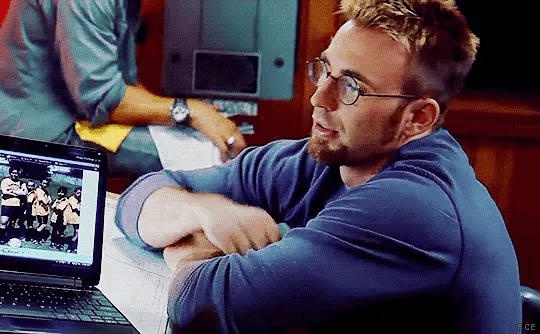
I'm in the mood for some tech nerds and IT experts to work on our gal's system. Let's tell our heroine what she needs and what our talented muse can do for her.

Today is my brilliant husband's birthday. I will proudly brag that he is a golden boy in a pretty big pond. He is a problem solver and can learn anything he needs to on the fly.

I'll be honest - when he tells me about work, I get so turned on! He is sexy as all hell when he is achieving the impossible! Plus that man spoils me rotten with solutions to problems I never even knew I had, because there is always an easier way this or that could be done. He'll figure it out. From day one, this man has me wrapped around his finger!
So to celebrate hubby's birthday in my own little way, I'm posting a prompt for some tech talk telling our heroine about what can fit in her available slots.

Let's talk titties!

For your inspiration, I have collected a few ascii images and stuff, all on the topic of tits and ass. You can thank @latent-thoughts, @maple-seed, and @muddyorbs for this rabbit hole I fell down this afternoon.

This shot's from @sebstanlove on Instagram.

@caffiend-queen @nildespirandum @jtargaryen18 @so-easy-to-love-me @fictive-sl0th @gigglingtiggerv2 @acidcasualties @michelleleewise @muddyorbs @lokisgoodgirl @talklokitome @lokischambermaid @wolfsmom1 @alexakeyloveloki @redfoxwritesstuff @myoxisbroken @ladyoftheteaandblood @imanuglywombat @deceitfuldevout @spectre-posts @wiypt-writes @mochie85 @americasass81 @mastreworld @latent-thoughts @emeraldrosequartz @nekoamamori @mooncat163 @devikafernando
I'm trying to remember who got a kick outta these prompts ? If don't want to be tagged, no worries - just let me know. We all use Tumblr differently. And I am crazy disorganized, but I promise I will start a list this week!!!
32 notes
·
View notes
Text
Saviors of the Human Race? OR... Creators of a New Race?
TOOZ WRITING PROMPT!
The Y Chromosome Is Vanishing. A New Sex Gene Could Be The Future of Men from Science Alert online magazine website.
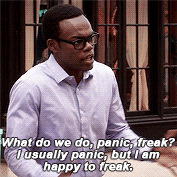
The Y Chromosome is degrading. Men are going to disappear! Then what??? Human extinction?

For the sake of exciting science fiction and very very fun smut inspiration, I'm going to speed evolution up by 11 million years and create a much more dire global situation.
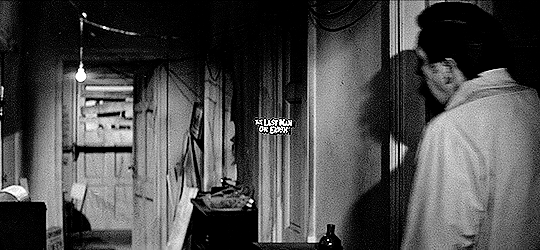
Where would YOU take our story? Any ideas?
The first idea that popped into my head involved two super soldiers with super sperm that will save the human race - one womb at a time. I think our heroine might be a geneticist? With a pair of pet platypuses. Platypuses? Platypi?
I was trying to just grab a couple hot super soldier gifs, but alas sometimes even inspirations have an agenda of their own. These medical gifs have a bit of a darker tone. How interesting!!! Who knew - maybe our super soldiers won't be saving humanity exactly how they thought they would?


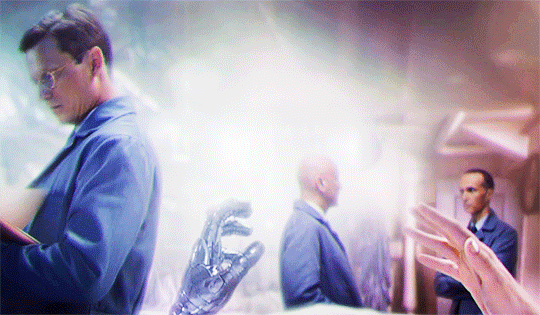

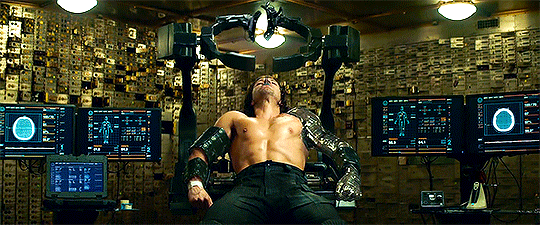
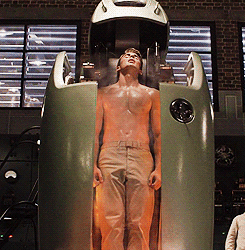

Or maybe aliens will be the saviors? Or gods? Or maybe humanity never survives, but rather evolves? Into what? Into whom?
Seriously, so many possibilities!! I tagged a handful of y'all off the top of my head who I thought might have fun tossing ideas around. If you don't want to be tagged, just let me know. I know I tend to get a bit over enthusiastic sometimes. :-)
@caffiend-queen @nildespirandum @latent-thoughts @so-easy-to-love-me @acidcasualties @kikster606 @lokisgoodgirl @what-is-your-plan-today @spectre-posts @myoxisbroken @muddyorbs @talklokitome @holymultiplefandomsbatman @mochie85 @jtargaryen18 @ijuststareatstuffhereok89 @nonsensicalobsessions @redfoxwritesstuff @alexakeyloveloki @deceitfuldevout @xorpsbane @michelleleewise @kalimav6 @tilltheendwilliwrite @tarithenurse @punemy-spotted @inkededucatednnerdy
23 notes
·
View notes